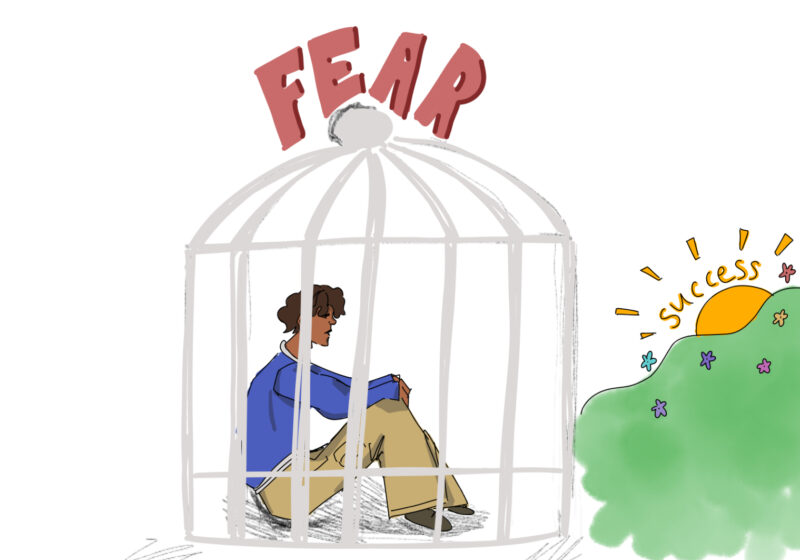The other day, with a little free time on my hands, I pondered what to do. My closet was staring at me with a look of despair that read “must do laundry – you have one shirt left and that shirt has a stain on it.” I could’ve opted to get ahead on my reading, which, though tempting, couldn’t really compete with better ways to spend my precious free hours. Then I saw it. Lying across my room, poking through a pile of grubby socks was my beloved “Sims” game – “The Sims 2,” to be exact. I used to play this game all the time in high school, but soon became addicted – and kind of a hermit – so the thought of playing it in college, where I was actually trying to make good grades and meet people, wasn’t appealing. Nevertheless, I turned my computer on, popped in the game and started on another bizarre “Sims” adventure.
In case you’re not familiar with this best-selling computer game, the basic premise is that you create and are in control of your characters and their daily lives. It’s an addictive game, though not addictive in the way most computer or video games are. You’re not trying to consistently move on to a higher level, kill other characters or save the world. You build your Sims a house, make them get jobs and force them to learn how to cook so they don’t burn their newly-built house down. The addiction comes in when your Sims’ worries and achievements become yours. Forget the 10-page paper you have due the next day, you still need to make sure your Sim kids do their homework and your Sim teens go to work – it’s kind of sad. With the expansion packs that have been added, you have the opportunity to send your Sims on vacations, buy them pets and even push them to attend college, where they can go to parties, join frats and streak naked around campus. Interestingly, you really can’t win at the game. The supposed goal is to get your Sims through life happy and content, but you really don’t have to. If you hate your Sims, you can make their lives a living hell.
I sat down at my computer and created my new Sim family. There was little Billy, a toddler with brown hair and big, blue eyes, and his parents, Barney and Belinda. I picked out modest outfits for each and then devised how to build a decent-looking house for my family with only 20,000 Simoleons. For those unfamiliar with the game, that isn’t much money. I decided on a two bedroom with a big kitchen, which seemed reasonable for the family, but because I spent too much money on the “Chez Moi French Country Counters,” I nonchalantly launched the family into Sim poverty before I could even buy a couch and TV for them. Big mistake.
Jobs were a must. Because Barney and Belinda didn’t have any life skills – skills they needed to receive promotions – I couldn’t turn them into the mayor or a surgeon right away like I wanted. Barney took a job as a dish washer at a local restaurant, but Belinda needed to stay home with Billy because I – er, they – couldn’t afford a nanny, which meant a very small income for the family.
When I played in high school, all my Sims ended up really wealthy, and somehow they could all afford to put a pool table in their master bedrooms, complete with a bar and arcade games. Why was my family going into starvation mode? Why couldn’t Belinda ever make it to the bathroom on time? Why did Barney spend all his time watching the dancing channel on TV when he should have been brushing up on his cooking skills to get a promotion? Obviously, my Sim-playing skills had declined while I had been distracted by college.
Nevertheless, I pushed little Billy. I made him study every day when he came home from school so that some day I could turn him into the coveted Medical Researcher I knew he had the potential to be. So what if Billy was an awkward adolescent who wore a kilt everyday, had no friends, had never kissed a Sim girl and would rather write in his diary on a Friday night than hang out in a hot tub with some of the neighborhood kids?
Finally, after almost 30 Sim days — a.k.a. six hours, I had the satisfaction of seeing little Billy rise up from Sim rags to riches. He moved into his own mansion, and I happily plopped a big pool table right next to his bed.
I rubbed my eyes. Had I really just spent 6 hours playing “The Sims?” My phone was ringing non-stop, my stomach was growling and I had zero feeling in my butt from sitting so long. I stood up, but a quick head rush pulled me back down. Then I completely lost it. Was I living in my own Sim world? Was someone controlling me? Did someone point and laugh at me through their computer screen every time I got upset because my social or hunger level was low?
I gently tucked the game back into my pile of grubby socks and decided it would stay there for awhile.
Kraus is a member of the class of 2009.





